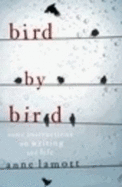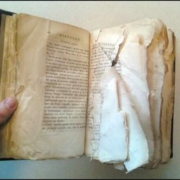 Why is it that — even without the teaching career — even without the three little girls who were underfoot for so many years and now are nearly grown — I STILL feel overwhelmed and as though I don’t have enough time to write?
Why is it that — even without the teaching career — even without the three little girls who were underfoot for so many years and now are nearly grown — I STILL feel overwhelmed and as though I don’t have enough time to write?
Because Louise DeSalvo told me to, I have been reading The 12 Week Year: Get More Done in 12 Weeks than Others Do in 12 Months. In this book, which is largely for manager-types and salespeople, Brian P. Moran and Michael Lennington explain that time is finite:
“It’s important to realize the simple truth that you can’t do it all; otherwise you will continue to labor under the false belief that you will eventually catch up, and finally get to the important stuff. You will continue to use all of your time on the urgent day-to-day activity and postpone the strategic that is required to create breakthrough and, ultimately, the life you desire.” (138)
You wouldn’t think that this would be such a big idea. I’ve encountered it before, and in contexts more relevant to my writing life. But it caught me at a vulnerable moment. And then these sentences, a few paragraphs down the page:
“Reaching a breakthrough isn’t about being incremental. Breakthrough requires a profound change in the way that you work…”
You have no doubt heard before much of what Moran and Lennington say. But their idea of ditching annual goals for 12-week goals strikes me as brilliant. You can still have annual goals, but you have to go through the process of breaking them down into doable 12-week chunks. Instead of writing down for 2015, “Lose 20 pounds, Declutter house; Finish two new books” — which sounds an awful lot like a wish list, rather than goals — thinking in 12-week chunks of time has made me get more concrete in all of my thinking.
If I want to lose 20 pounds this year (ultimate goal: to be radically healthy into my 90s!), how much will I have to lose over the next 12 weeks? And what actions will I have to take this week in order to be on track with my 12-week goals?
To finish my novel rewrite before I take my Florida vacation (which was about 7 weeks out when I  started reading The 12 Week Year), what actions will I need to take? This week? Today?
started reading The 12 Week Year), what actions will I need to take? This week? Today?
To send the requested 8-10 poems to the journal that requested them by the end of May, what actions do I absolutely have to take this morning, now?
I started by printing up a 12-week calendar that fits on a single, 8×10 page — a planning practice from my teaching days. I had SO much to write into it, that I then made the calendar days bigger and put it on two pages of six weeks each. I divided up the work, leaving myself leeway (I know myself too well to think I won’t need leeway), and planning for Sundays off from writing.
Today, one poem, polished and put in the file to submit. (Tomorrow, another.)
I’ll let you know what happens.
 I should have reminded you that my use of “shitty first draft” comes from Anne Lamott’s splendid writing book, Bird by Bird.
I should have reminded you that my use of “shitty first draft” comes from Anne Lamott’s splendid writing book, Bird by Bird. 


 Why is it that — even without the teaching career — even without the three little girls who were underfoot for so many years and now are nearly grown — I STILL feel overwhelmed and as though I don’t have enough time to write?
Why is it that — even without the teaching career — even without the three little girls who were underfoot for so many years and now are nearly grown — I STILL feel overwhelmed and as though I don’t have enough time to write? started reading The 12 Week Year), what actions will I need to take? This week? Today?
started reading The 12 Week Year), what actions will I need to take? This week? Today?

